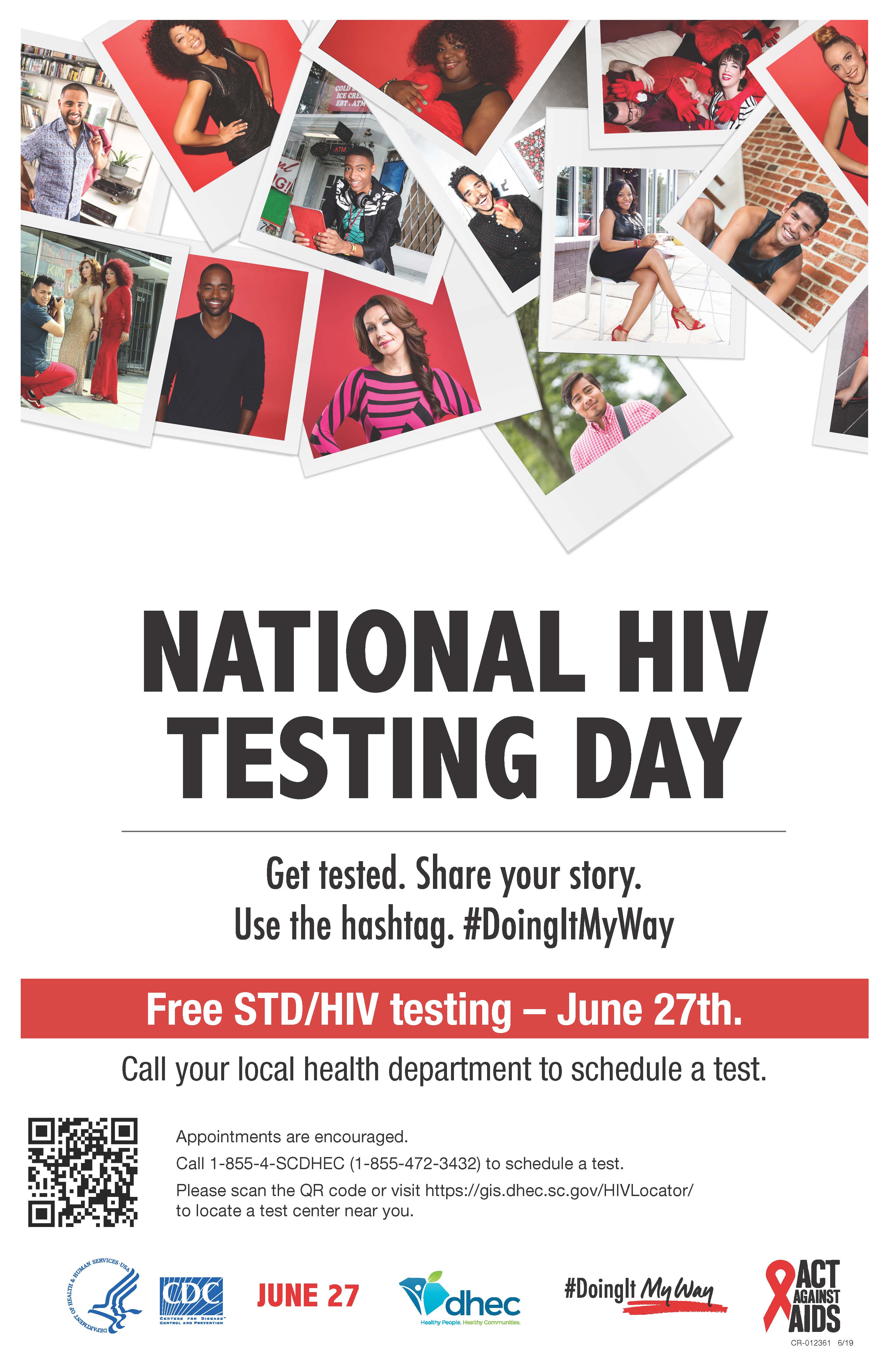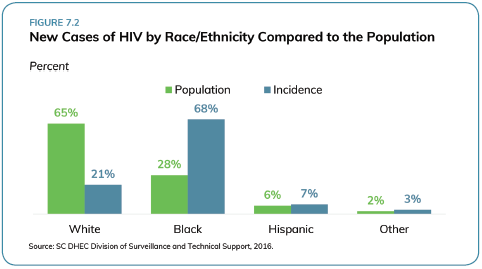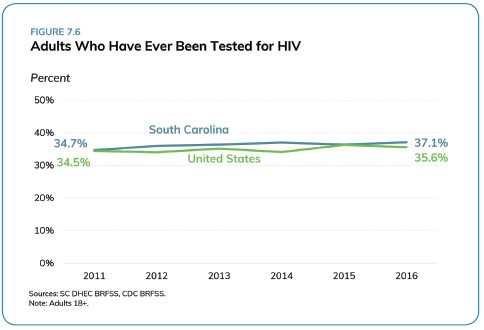To ensure you’re receiving the most up-to-date and accurate information, please choose the correct agency from the homepage. The DHEC website is no longer being updated and will be permanently unavailable Dec. 31, 2024.
FREE HIV Testing Tomorrow for National HIV Testing Day

Participating local DHEC health departments will administer FREE HIV testing tomorrow, June 27, 2019 in recognition of National HIV Testing Day (NHTD). No appointment necessary, but encouraged. First observed in 1995, NHTD was created to increase awareness about HIV and encourage people to get tested. This year’s theme is “Doing It My Way.”
HIV is a virus spread through certain body fluids that attack the body’s immune system, often called T cells. Over time, HIV can destroy these cells so much that the body cannot fight off infections and disease and therefore creates a week immune system, making it susceptible to various diseases and cancers.
According to the Centers for Disease Control and Prevention (CDC), 1.1 million people in the United States are living with HIV, including approximately 166,000 people who are unaware of their status. In the United States, HIV is mainly spread by having anal or vaginal sex with someone who is already infected without using a condom or sharing needles, syringes, rinse water, or other equipment used to prepare drugs for injection with someone who is infected. Although it is not as common, HIV can be spread from mother to child during pregnancy, birth, or breastfeeding or by being stuck with an HIV-contaminated needle.

According to the 2018 South Carolina Health Assessment:
- The number of new HIV cases decreased 32.3% from 1,170 cases in 1998 to 792 cases in 2016.
- African-Americans made up 28% of the population in South Carolina, yet were comprised 68% of people newly diagnosed with HIV/AIDS.
- People ages 20-29 years old had higher rates than other age groups.
- People ages 50-59 years old comprised 31% of the people living with HIV/AIDS.
- In 2011, 34.7% of adults had been tested for HIV, compared to 37.1% of adults in 2016.
- Just over 46% of Hispanic/Latinos in South Carolina were tested for HIV.

By ensuring that everyone who has HIV is aware of their infection and is receiving treatment, new HIV infections in South Carolina can be dramatically reduced. Visit your local public health clinic and get tested. (Tell a friend, too!)